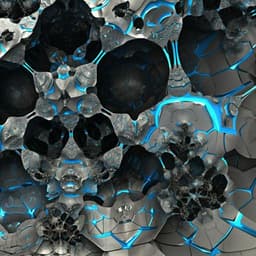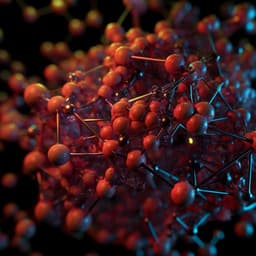
Physics
Leveraging generative adversarial networks to create realistic scanning transmission electron microscopy images
A. Khan, C. Lee, et al.
This groundbreaking research, conducted by Abid Khan, Chia-Hao Lee, Pinshane Y. Huang, and Bryan K. Clark, introduces an innovative machine learning framework that enables models to efficiently generalize across extensive datasets in electron microscopy. Utilizing a cycle generative adversarial network, their approach not only enhances simulated data with realistic details but also streamlines the identification of single atom defects with astonishing adaptability.
Related Publications
Explore these studies to deepen your understanding of the subject.







